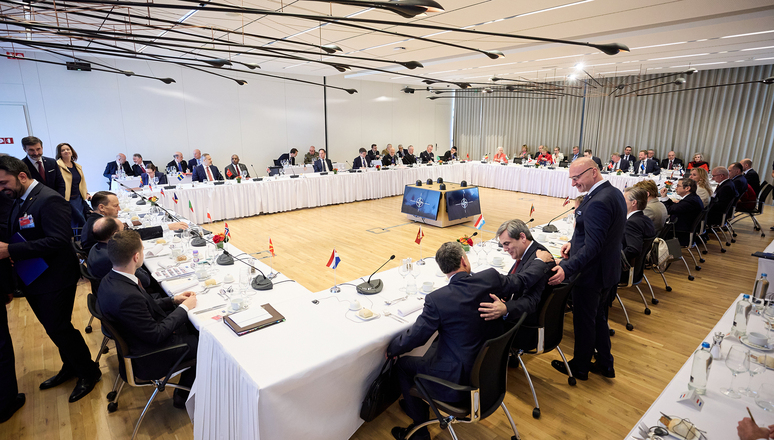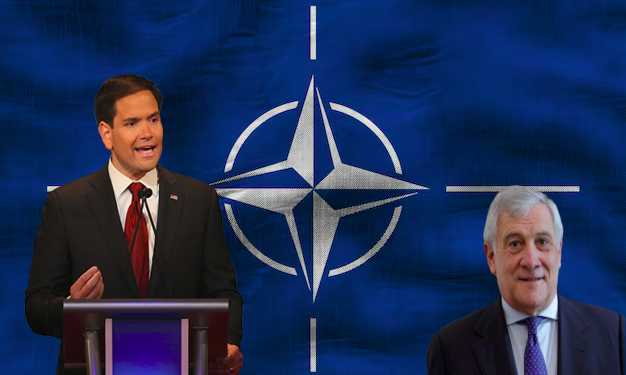Brussels – The US has no plans to leave NATO, but European allies must invest more. On the day of disappointment and anger over tariffs the US slapped on European Union goods, the US and EU countries in the Atlantic Alliance seek rapprochement. It is the US Secretary of State, Marco Rubio, who reassures.“We will remain in NATO,” and the president himself, Donald Trump, “has made it very clear, he supports NATO,” he spells out during a press conference held with the organization’s secretary general, Mark Rutte. Europeans have nothing to worry about: “We want NATO to become stronger,” the US Secretary of State insists.
However, there is a ‘but’. Washington’s commitment must be accompanied by one from the other capitals- a financial commitment. For the Atlantic Alliance to become as strong as Rubio wants it to be, it needs “all partners, all nations to have greater capacity.” That means spending. “Each member must commit and fulfill their promise to reach 5 percent of national spending” as a percentage of Gross Domestic Product on defense and military capability, Rubio said. A request that inevitably rekindles rifts and disagreements.

“If you ask us to get to 5 percent” of GDP in military spending “but at the same time you impose tariffs, it’s a bit difficult to do both,” criticizes Foreign Minister Antonio Tajani, who expresses the same concept in another way: “If you ask us to get to 5 percent, choosing tariffs undermines the proposal to get to 5 percent.”
From Warsaw, where the informal meeting of defense ministers is taking place, the EU’s High Representative for Foreign and Security Policy, Kaja Kallas, calls on EU member countries within NATO to reconsider their national agendas in a less American sense. “The defense cooperation that we have with the Americans is also very important,” she acknowledges. However, there is a need to think about “what more we can do about our own defense industry because we are buying a lot from the Americans right now. But we need to diversify our portfolio so that we have capabilities to produce here – the ammunition and things that we need here – and also to be able to buy from other allies.”
English version by the Translation Service of Withub
![Enrico Letta [Bruxelles, 3 aprile 2025]](https://www.eunews.it/wp-content/uploads/2025/04/letta-350x250.png)






